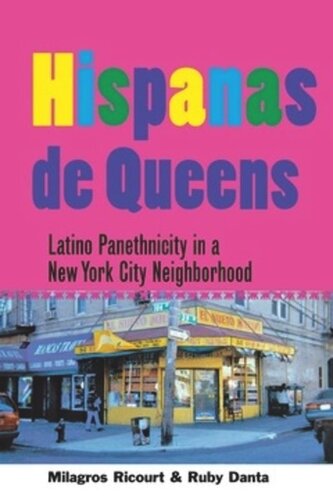

Most ebook files are in PDF format, so you can easily read them using various software such as Foxit Reader or directly on the Google Chrome browser.
Some ebook files are released by publishers in other formats such as .awz, .mobi, .epub, .fb2, etc. You may need to install specific software to read these formats on mobile/PC, such as Calibre.
Please read the tutorial at this link: https://ebookbell.com/faq
We offer FREE conversion to the popular formats you request; however, this may take some time. Therefore, right after payment, please email us, and we will try to provide the service as quickly as possible.
For some exceptional file formats or broken links (if any), please refrain from opening any disputes. Instead, email us first, and we will try to assist within a maximum of 6 hours.
EbookBell Team

5.0
40 reviewsWhat happens when persons of several Latin American national groups reside in the same neighborhood— Milagros Ricourt and Ruby Danta consider the stories of women of different nationalities—Colombian, Cuban, Dominican, Ecuadorian, Peruvian, Puerto Rican, Uruguayan, and others—who live together in Corona, a working-class neighborhood in Queens. Corona has long been an arrival point for immigrants and is now made up predominantly of Spanish-speaking immigrants from the Caribbean and South and Central America, with smaller numbers from Asia, Africa, and Europe. There are also long-established populations of white Americans, mainly of Italian origin, and African Americans.The authors find that the new pan-Latin American community in Corona has emerged from the interactions of everyday living. Hispanas de Queens focuses on the places where women gather in Corona—bodegas, hospitals, schoolyards, and Roman Catholic and Protestant churches—to show how informal alliances arise from proximity.Ricourt and Danta document how a group of leaders, mainly women, consciously promoted this strong sense of community to build panethnic organizations and a Latino political voice. Hispanas de Queens shows how a new group identity—Hispanic or Latino—is formed without replacing an individual's identification as an immigrant from a particular country. Instead, an additional identity is created and can be mobilized by pan-Latino leaders and organizations.